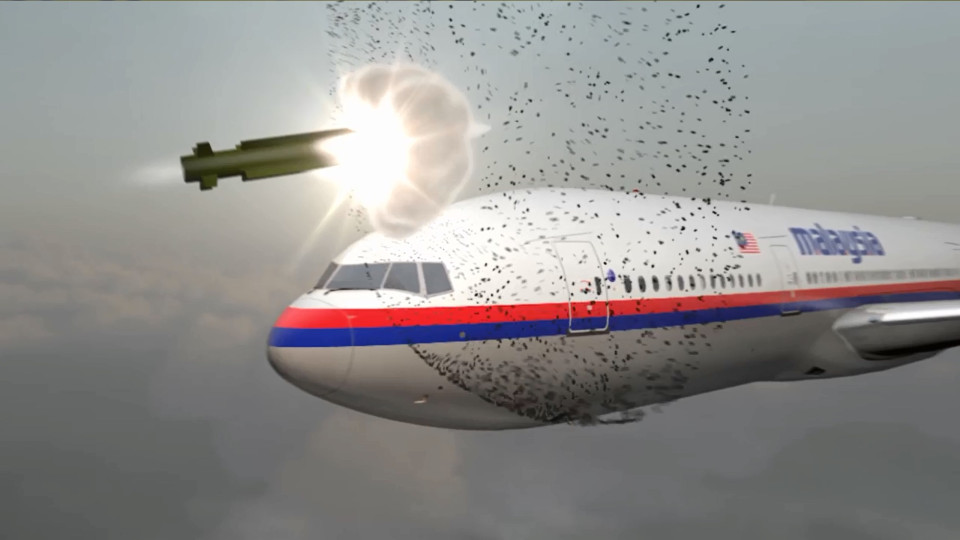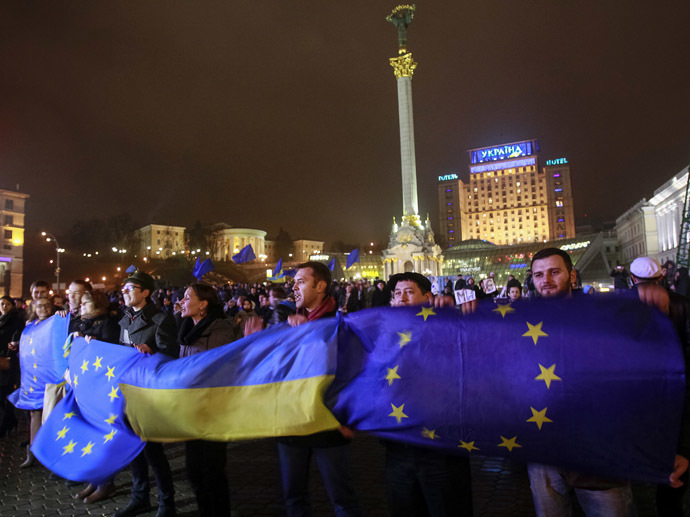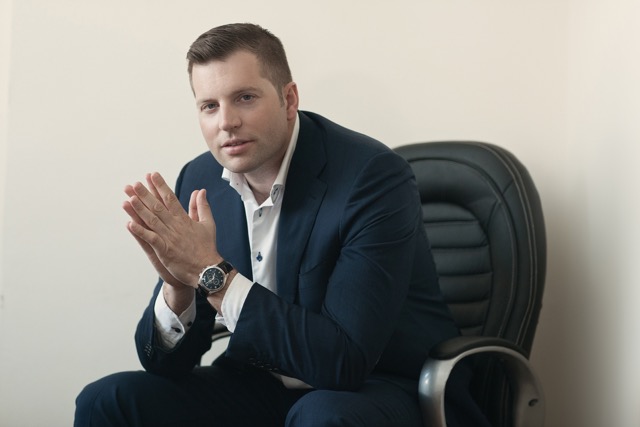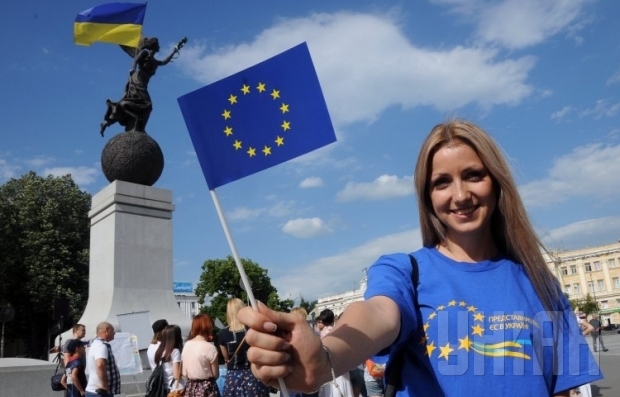Whatever the outcome of the Dutch referendum on the EU-Ukraine Association Agreement will be, the whole process has been very much enlightening and disheartening at the same time. The Dutch state spent forty million euro on a referendum that asked citizens to vote for or against an agreement virtually nobody read, very few really understood, concerning a country most people didn’t know anything about and where virtually none of the voters have ever been. In other words: whatever the people decided, it was a decision based on a total lack of what was at stake and with an avalanche of information that was often incomplete, tendentious or consisting of outright lies. In that respect, the referendum that was meant to be a highly democratic tool turned into a farce and an insult to democracy.
Of course, it all started on a wrong footing. The campaign to hold the referendum was organized by people who later acknowledged they didn’t care less about Ukraine but were only interested in destabilizing the European Union. Their ultimate goal was the departure of The Netherlands from the EU and for that Ukraine had to be sacrificed. The fact that the campaign was organized with a EU subsidy that should have not been used for this purpose was illustrative of the organizers’ nihilism, and later they managed through other tricks to accumulate four times the maximum campaign subsidy they were allowed to receive from the Dutch government.
This governmental subsidy was a farce it itself, because the committee that dispersed the funds had no interest in content but only looked at technicalities. The result was that a businessman managed to get 50,000 euro to print toilet paper with “information” against the agreement, which was again a concoction of half-truths, outright lies and a lot of information “from hearsay”, all focused on making people vote against. The organizers of the referendum again played a clever trick by claiming they campaigned “against’, “in favor” and “neutral”, thus amassing more funds by applying for subsidies for all three campaigns separately. That the “neutral” and ‘in favor” campaign materials were so cleverly written that they too evoked an “against” feeling was apparently not of importance.
Socialist Party MP and campaigner Harry van Bommel, who in spring 2014 stood on Maidan after the carnage and voiced his support for those who fought for freedom, now took a totally different party line. He campaigned “No, no, no” (as if one “no” is not fully understood) and to support his view he paraded a number of “patriotic Ukrainians” who helped explain to the Dutch voters that Ukraine was a divided country in civil war and that many Ukrainians were against this agreement. First there was a self-professed former neighbor of Yanukovych now living in The Netherlands. Then at party gatherings he decided to use the highly-criticized French propaganda film “Masks of the Revolution”, to show that Ukraine is run by a gang of corrupt, right-wing semi-fascist crooks. Subsequently he aired a clip by the separatist Aleksei Zhuravko, a former MP of the Party of Regions who is now hiding from the SBU because of collecting financial support for the separatists and who continues to this very day to post photos of Ukrainian troop movements in social media in order to inform the enemy of their whereabouts and strength. Anything to feed his “no” campaign, irrespective of the content.
And thus the level of the debate continued to sink. Dutch media tried to remain “neutral”, balancing views from both sides. But this not only concerned views in The Netherlands, also Ukrainian views “against” should be put on an equal level as views “in favor”. A Dutch journalist complained to me that she had been sent to Kyiv to interview a Ukrainian “in favor”, “neutral” and “against”. But where to find an “against” here, she sighed. So she went to the DNR, sure she would find one over there. That three-quarters of the Ukrainians are in favor of this Association Agreement was carried by only few media.
This latter problem – the overwhelming urge to be “neutral” – is hard to explain. The notion that “the truth is in the middle” has taken on such huge proportions that taking sides and supporting a cause have almost become “unhealthy”. One factor that plays a role, I think, is the fact that many experts of the region are either Russia based, or have families in Russia, or are Russia-oriented, and so often they look at the Russo-Ukrainian war with “Russian eyes” or at least under strong influence of Russian media and public opinion. What they don’t understand is that Putin’s Russia is not Russia, but a country gang-raped by 75 years of communism and subsequently hijacked by one of the worst rapists, the KGB. So while dissident Russian writer Vladimir Voinovich makes his choice and openly states he will not visit Crimea as long as it is occupied even though his parents are buried there, they continue to be “neutral” and support the Moscow-induced view that there is a civil war in Ukraine and that the country is run by a corrupt clique that romances with right-extremism. Their views have an impact, because they are “experts” and thus they should know. And in the sea of total ignorance their well- worded opinions are swallowed almost without criticism.
The campaign for the referendum has triggered the worst possible discussions and debates in social media. Naively, I always thought that the Dutch after 400 years of democracy had at least a certain minimal standard. That view has been totally crushed. What I saw passing by was worse than I could have imagined in my worst dreams. It was much worse than the shouts of the mob in Vilnius in 2011 during the gay parade in the city, which I then ascribed to being in a post-totalitarian country still learning the ropes of democracy. Well, in Lithuania the climate has changed, and much for the better. There they know what lack of freedom means, they understand the necessity of defending it, at all costs.
In Holland it seems the past is long forgotten and the cosy life in an affluent country has made people greedy, self-serving, egocentric and above all fundamentally dissatisfied. They are convinced they are entitled to have only the best and that the whole world is crouching upon them in order to take away that what is “rightfully theirs”: Muslims, Poles, corrupt politicians, and now another 45 million Ukrainians. They repeat slogans about “right wing extremists” and “fascists” in Ukraine, without realizing that their populist leaders are faithful pupils of Mussolini and the like, and that their “popular resistance” has the same elements as politics in Germany in the late 1930s.
To me the referendum has been a very painful confrontation with the country in which I grew up. It was a liberal country, a country with free people, open-hearted, welcoming and with a very vibrant community of people working in charities and aid organizations, either as volunteer or as a professional calling. The Netherlands I saw these past weeks are a total opposite. I am ashamed of the Dutch who voted against Ukraine, who do not understand the price of freedom, who do not understand the psychological importance of knowing there are others by your side. It goes too far to say the country needs a little war to wake up, but deep down I cannot resist that nasty feeling. 70 years of peace have turned a nation into a wobbling overfed Christmas turkey. Poor country, and poor Ukraine that sees its integration into the European family threatened by this self-indulging lot.






